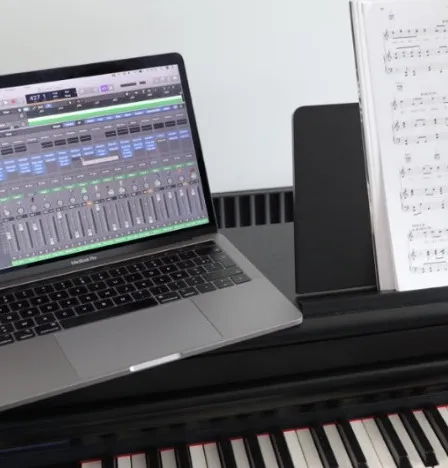The funniest question I ever got was about a grand piano. A man came to my store, sat down behind a grand piano, and asked, "How do I drive this car?" The man had never seen a piano in his life. After a brief explanation and a little playing, he was a little disappointed. He was hoping to find a very unique car.
Frequently asked questions
We receive many questions about upright pianos and grand pianos every day. All our colleagues are happy to help. However, in order to help everyone quickly, we have compiled a list of the most frequently asked questions.
- Written by Rutger Klaaijsen
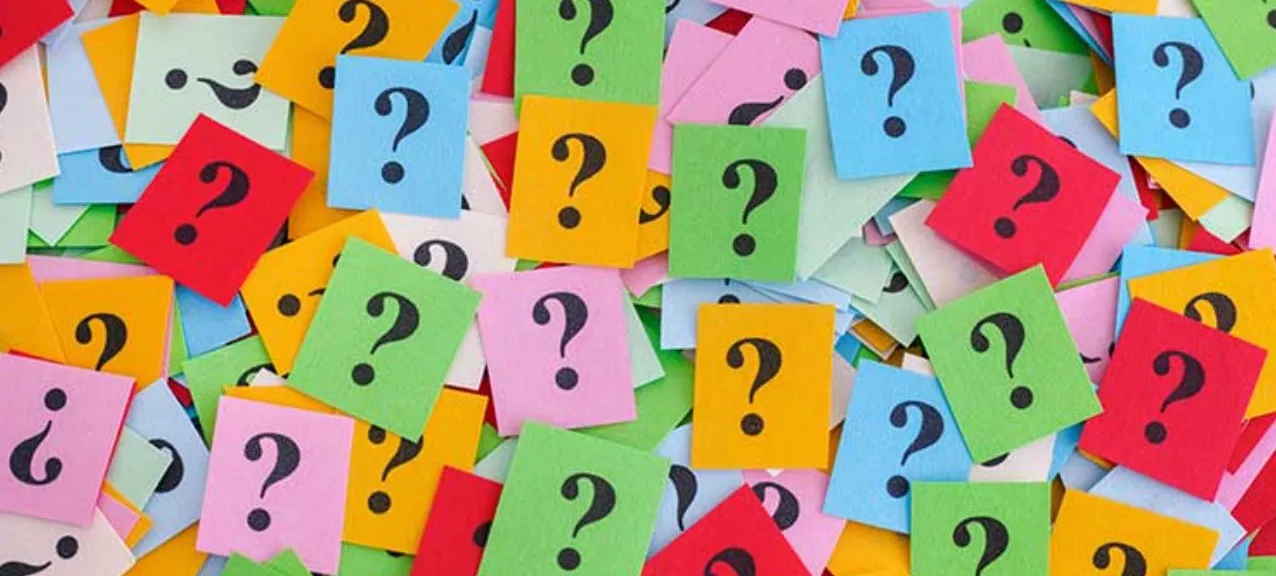
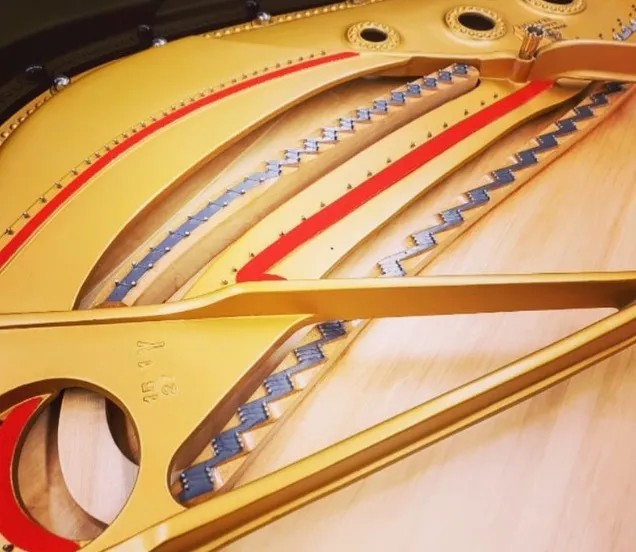
1. Why is a piano so heavy?
A piano or grand piano is equipped with a cast iron frame. This frame carries a lot of tension from the steel strings. Cast iron is very heavy and stiff! A piano easily weighs 200 kilograms, 60% of this weight comes from the frame.
2. What is a piano made of?
Different kinds of wood, cast iron, steel, brass, copper, felt, leather, fabric, plastic and polyester lacquer. Watch our video on building a piano here.
3. What is a piano keyboard?
The keys! When someone talks about the keyboard, they are talking about the keys of a piano or grand piano. Usually a piano has 88 keys.
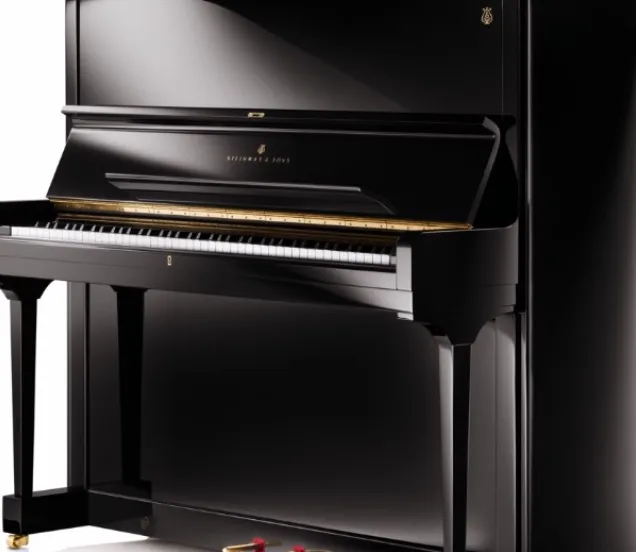
4. What is a piano cabinet?
The cabinet of the piano refers to the exterior. A piano is a cabinet with an instrument inside.
5. How old is my piano?
A piano almost always has a serial number. The serial number can be found on the inside of the piano. Often at the top of the right side, or in the middle. Enter the serial number via this website and you will have the age of your piano.
6. What is the correct posture when playing the piano?
It is important that the piano bench is height adjustable. This way you can sit and play at the right height. The posture you adopt is the same as when you sit neatly behind a desk. Straight back, arms at a 90 degree angle and hands relaxed.
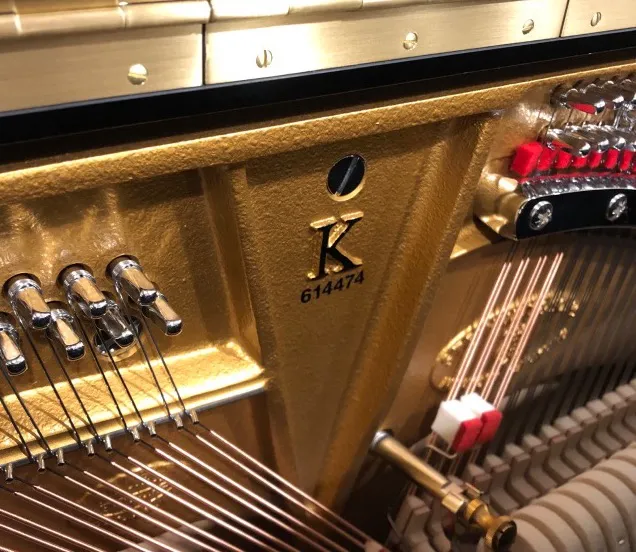
7. How can I properly mute a piano?
A piano almost always has a moderator or middle pedal. With this feature you can already make the piano a lot softer. Read more about muting a piano in our blog about noise disturbance.
8. How often should a piano be tuned?
At least once a year, but we don't recommend that. This will only ensure that the piano stays reasonably at the right pitch. If you also want your piano to sound nice, have it tuned at least twice a year. Read more about this in our blog about piano tuning.
9. Why does a piano have 3 pedals?
Not every piano has three pedals. Older pianos often have only two pedals.
Right pedal/sustain pedal: when you press this pedal, the dampers come off the strings and the music sounds through. Sort of an echo effect!
Left pedal/dolce pedal: this pedal brings hammers closer to the strings. This allows you to play a little softer and with more nuance.
Middle pedal/study pedal: when pressing this pedal, a slat of felt falls between the strings and hammers. This makes the piano considerably more silent. Ideal if you want to practice 'let it go' from the movie Frozen a lot!
Grand piano pedals are slightly different. Read more about the differences between upright pianos and grand pianos here!
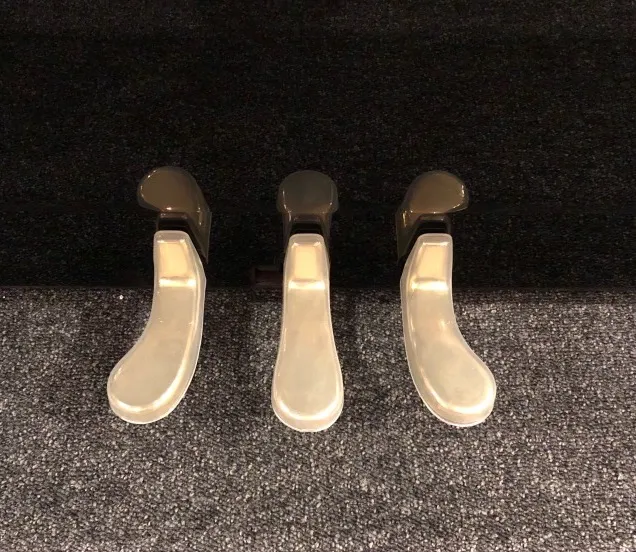
10. Why is a piano a "percussion" instrument?
Because there are hammers hitting the strings when you press the key. That makes it a keyboard, string, and percussion instrument.
11. How do I move a piano?
A piano is quite heavy. You can't move that very easily. You need a couple of strong guys and a steel moving cart. A Woden cart is also possible, but it is very risky. With two people you can lift the piano and put it on the moving cart. Make sure the piano is properly positioned! A piano can fall over very easily. Now you can carefully move the piano. Lift the piano a little on one side in order to be able to steer it. Never walk away from a piano that is standing on a moving cart. Someone should always stand by. Of course, it's even easier to have us do it for you!
12. Can you learn to play the piano yourself?
Yes, you can! There are many ways to learn to play the piano. For example, via lessons on apps or YouTube turorial videos. We do recommend taking lessons, because a teacher does a lot more than just teach you to play the piano. Want to know more? We have a blog dedicated to this topic.
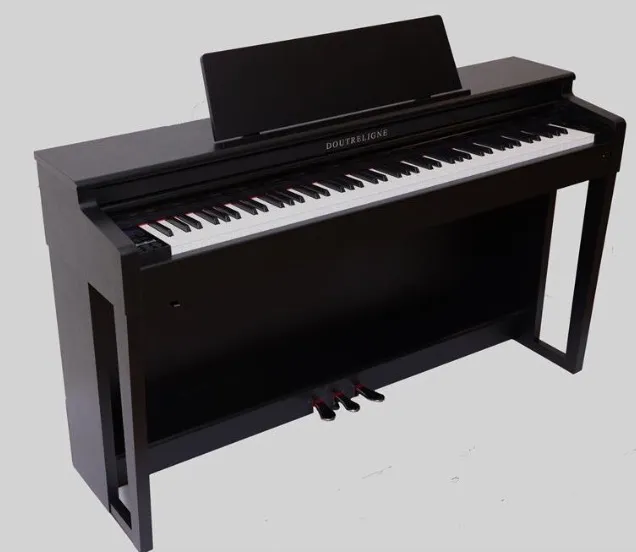
13. Does a digital piano require maintenance?
No. Some digital pianos do need to be updated. You can find this on the website of the brand where you bought the digital piano.
14. How much is my piano worth?
This is difficult to estimate. After an appraisal, we can say with certainty how much a piano is worth. There are, however, extra costs attached to this.
15. Do you also buy pianos or grand pianos?
Yes, we have a page on our website where you can fill in a form. We will let you know on short notice if we can buy your piano or grand piano.
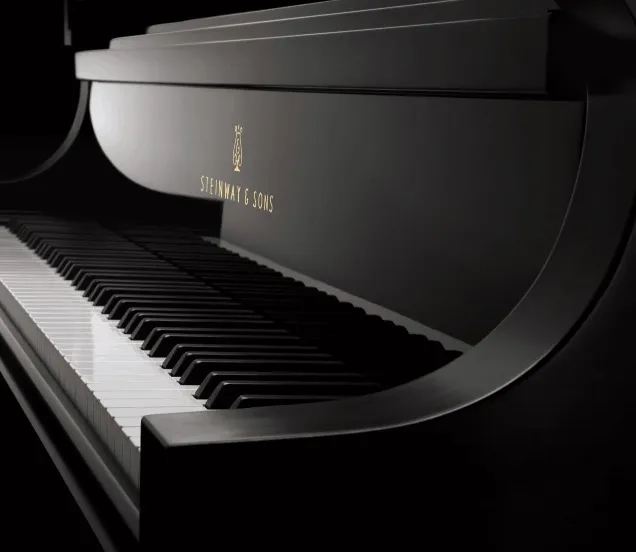
16. Do you buy digital pianos, keyboards or organs?
No. We do not sell keyboards or organs. We cannot guarantee second-hand digital pianos. We want to offer an instrument of good quality, which we cannot guarantee. For this reason, we have decided not to buy second-hand digital pianos.
17. What is the difference between a digital piano and an acoustic piano?
There's quite a big difference! A digital piano is an imitation of an acoustic piano. We have written about this extensively in a blog.
18. Can I pay for a piano in parts?
Yes, you can! Read more about this on our purchase page via the website.

